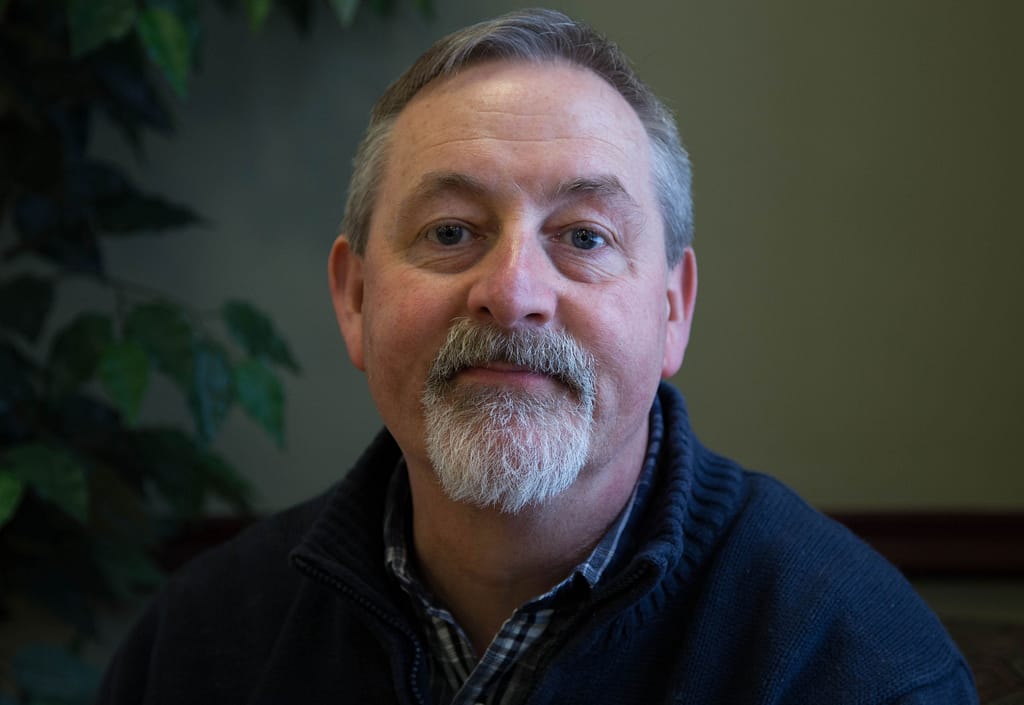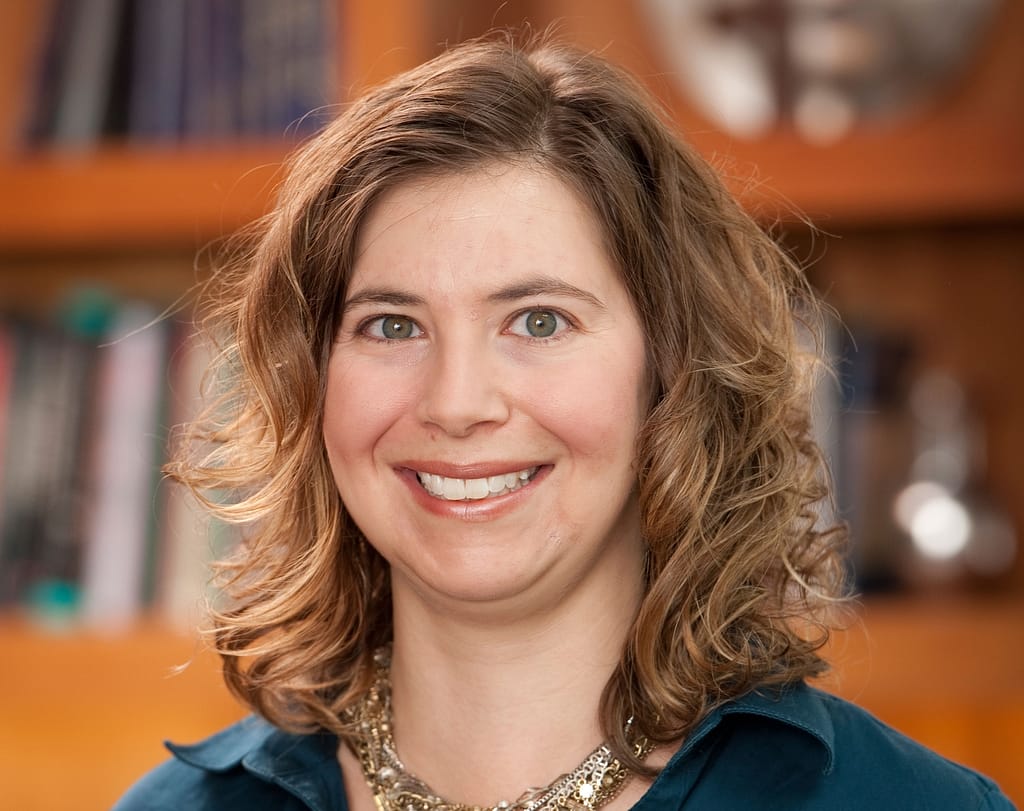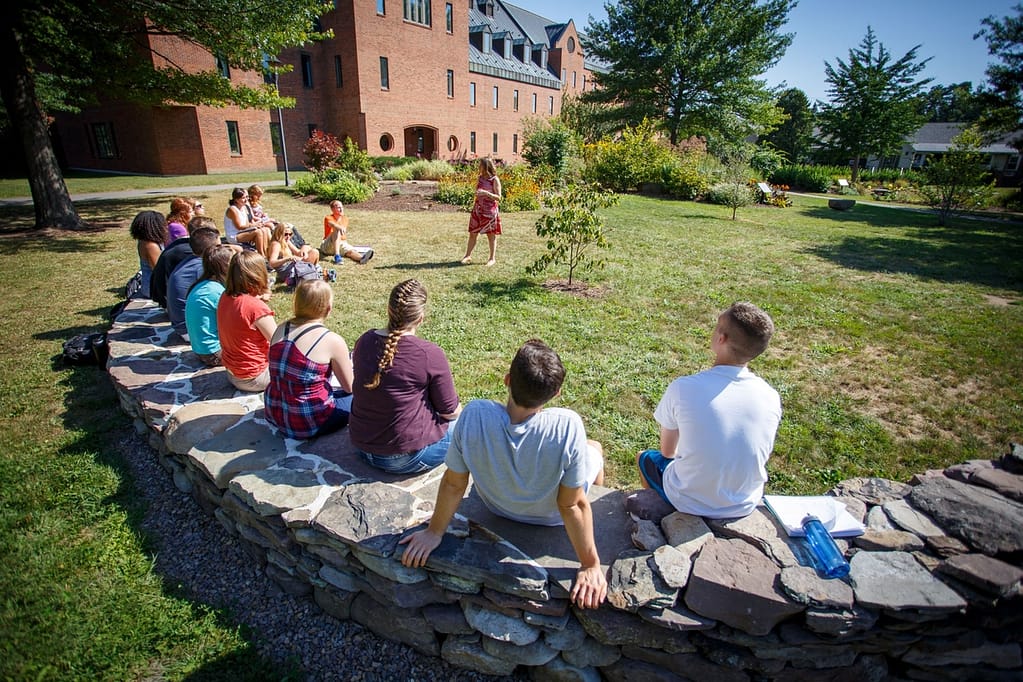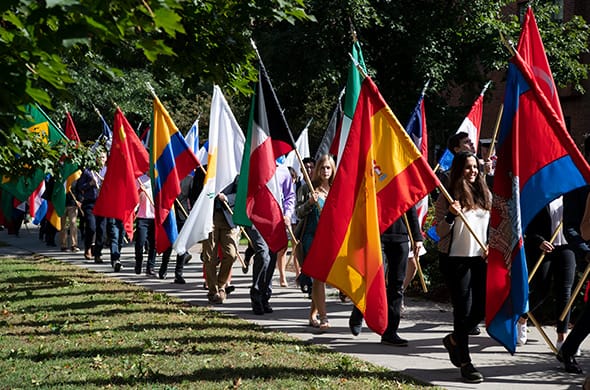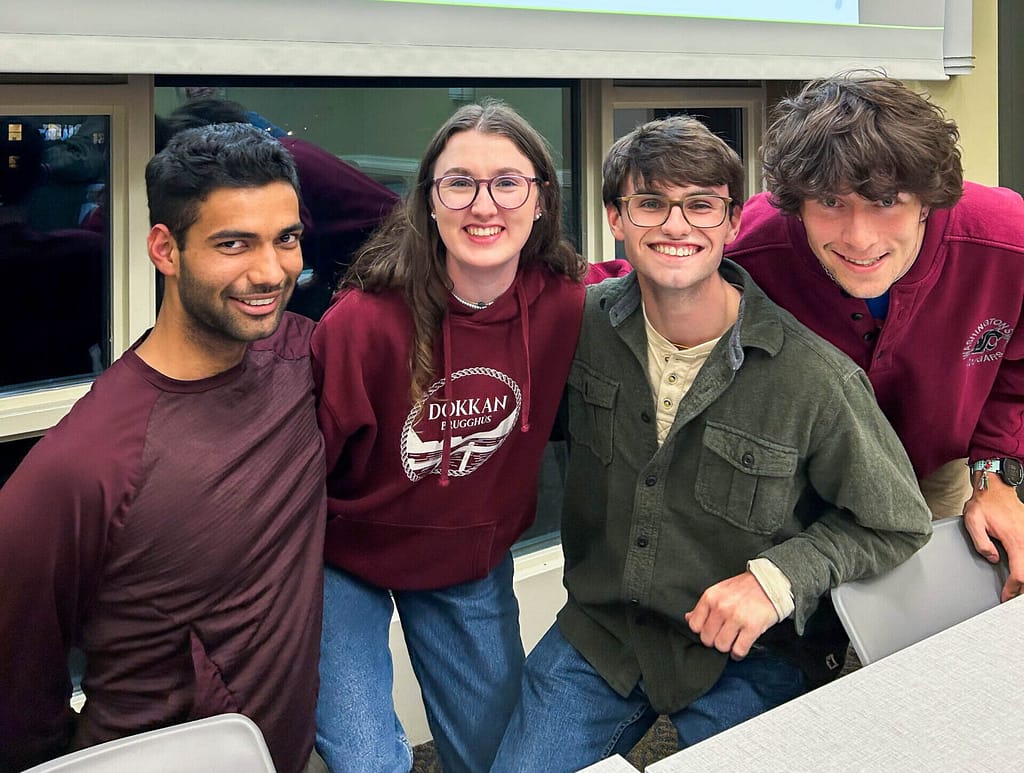About
Geographers examine the complex relationship between humans and the Earth through a spatial perspective. Their work is necessarily cross-disciplinary, making this minor concentration a perfect fit at a liberal arts college. It can complement and extend your work in many areas of concentration ranging from the natural sciences to the humanities and social sciences. Geography courses also feature strongly in the interdisciplinary programs in Global and Environmental Studies.
Geography study at St. Mike’s will equip you to analyze, understand and improve the world around you, perhaps as a city or regional planner (the satisfying work of several successful recent graduates) or as a steward and preserver of valuable resources for public or private enterprises. Challenging courses help you analyze problems across traditional disciplinary boundaries, preparing you for an interesting variety of careers or later graduate studies.
By taking human geography at St. Mike’s you’ll explore Earth processes, the interaction of humans with their environment, and the organization of human activities as they relate to the spaces where humans live. In depth, you can examine the complexities of human/environment relations; and the creation and re-creation of places by technology, politics, engineering, nature, science and economics at a variety of scales, from local to global. The discipline also offers one of the central analytical viewpoints on the processes of globalization and Earth Systems – both hot topics in today’s world.
In Depth
Some courses you’ll take focus on a specific topic (the evolution of the world economy, political geography, or the geography of cities; electronic mapping ). Others are more applied focusing the ways in which societies shape their environment (geography of water; environmental policy; community and environmental planning). All are designed to broaden the social and cultural horizons of students and to contribute to a sophisticated understanding of their world. We also offer an entry-level Physical Geography class, an upper level class focused on natural hazards, and a lab-based class focused on Geographic Information Systems – also known as GIS. Natural hazards and GIS are offered through the Environmental Studies program.
Courses which focus on systematic human geography include a survey class at the introductory level as well as more specialized intermediate and upper level courses in urban, political and economic geography. Geography courses are designed to broaden the social and cultural horizons of students. Many courses fulfill elective requirements in other major and minor concentrations.
Careers
Many geographers pursue rewarding careers in education; business; local, state, or federal government agencies; and nonprofit organizations. The fields of urban planning and community development are wide open and a natural fit for somebody with a background in geography. Several of our graduates are working in such jobs today. Other geographers work as cartographers or in Geographic Information Systems (GIS). Some find jobs in climatology for weather agencies, in transportation management, environmental management, research and specialized technical writing or teaching at the high school or college level. The American Association of Geographers provides additional information for careers in graduates with Geography qualifications. Find their career site at this address: http://www.aag.org/cs/careers
Special Opportunities
Some of our students recently have conducted extensive summer research projects, such as Matt Crawford ’12 who analyzed conservation easements in Vermont and the effects they have on everything from working farms to hiking trails. Matt reports that he got a great practical education on tax and legal issues in the process.
Internships are also possible during the school year.
In Depth
Some courses you’ll take focus on a specific topic (the evolution of the world economy, political geography, or the geography of cities; electronic mapping ). Others are more applied focusing the ways in which societies shape their environment (geography of water; environmental policy; community and environmental planning). All are designed to broaden the social and cultural horizons of students and to contribute to a sophisticated understanding of their world. We also offer an entry-level Physical Geography class, an upper level class focused on natural hazards, and a lab-based class focused on Geographic Information Systems – also known as GIS. Natural hazards and GIS are offered through the Environmental Studies program.
Courses which focus on systematic human geography include a survey class at the introductory level as well as more specialized intermediate and upper level courses in urban, political and economic geography. Geography courses are designed to broaden the social and cultural horizons of students. Many courses fulfill elective requirements in other major and minor concentrations.
Careers
Many geographers pursue rewarding careers in education; business; local, state, or federal government agencies; and nonprofit organizations. The fields of urban planning and community development are wide open and a natural fit for somebody with a background in geography. Several of our graduates are working in such jobs today. Other geographers work as cartographers or in Geographic Information Systems (GIS). Some find jobs in climatology for weather agencies, in transportation management, environmental management, research and specialized technical writing or teaching at the high school or college level. The American Association of Geographers provides additional information for careers in graduates with Geography qualifications. Find their career site at this address: http://www.aag.org/cs/careers
Special Opportunities
Some of our students recently have conducted extensive summer research projects, such as Matt Crawford ’12 who analyzed conservation easements in Vermont and the effects they have on everything from working farms to hiking trails. Matt reports that he got a great practical education on tax and legal issues in the process.
Internships are also possible during the school year.
